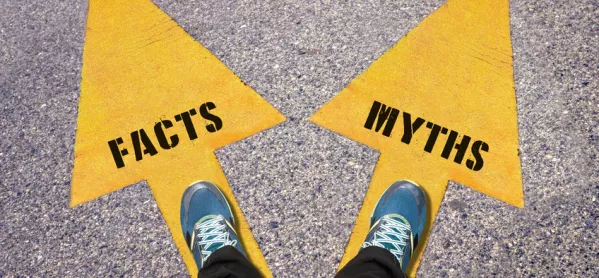- Home
- ‘The government expects teachers to use evidence - it should do the same with its education policies’
‘The government expects teachers to use evidence - it should do the same with its education policies’

It is just six months since the appearance of the education White Paper Educational Excellence Everywhere, although it seems longer. Billed as the Big Thing of Nicky Morgan’s tenure as secretary of state, it has hardly been mentioned since her successor took office in July. The White Paper is in danger of becoming a white elephant.
Rather lost among the large number of White Paper proposals and the controversies over compulsory academisation and the removal of parents from governing bodies, there was a positive section on the use of research evidence, which it would be a pity to lose if Justine Greening decides to scrap her predecessor’s White Paper in its entirety.
”One of the hallmarks of a mature profession,” states the White Paper, ”is a body of evidence which sets out what works and what doesn’t, and which develops and evolves over time. This body of evidence is as valuable in teaching as in any other profession. We will increase teachers’ access to and use of high-quality evidence, ensure teachers are trained in understanding and applying evidence, and support the establishment of a new, peer-reviewed British education journal.”
As an example of the benefit of using evidence, the White Paper cites the Education Endowment Foundation (EEF) finding that the use of mastery teaching methods can lead to an additional five months’ progress over the course of a school year, compared with mainstream approaches.
The White Paper criticises the profession for the use of Brain Gym, despite the lack of evidence of its proven success in trials, and quotes Dr Ben Goldacre’s report for the Department for Education in 2013, Building Evidence into Education, in which he stated: “There is a huge prize waiting to be claimed by teachers. By collecting better evidence about what works best, and establishing a culture where this evidence is used as a matter of routine, we can improve outcomes for children, and increase professional independence.”
In fact, schools have embraced the use of research evidence through increasing use of the EEF’s Teaching and Learning Toolkit, now accessed by two-thirds of schools. The Toolkit has been a critical factor in targeting pupil premium funding effectively and efficiently, with many schools using high-impact low-cost strategies, such as feedback and metacognition, highlighted in the EEF research.
The White Paper promised to encourage the use of evidence by teachers through the establishment of a peer-reviewed British education journal by the new College of Teaching, with the aim of replicating for teachers the research dissemination role of the British Medical Journal for doctors.
If the proposals in the White Paper come to fruition, the EEF would be given a wider brief across the whole education system, while continuing its emphasis on successful practice with disadvantaged pupils. So far, so good.
Take a look at the research
What was missing from the White Paper - and from the subsequent speeches of the two secretaries of state - was any indication that the government would similarly increase the use of evidence in its policy-making. Indeed, the policy on the expansion of grammar schools in order to increase social mobility - outlined in the government’s Green Paper, Schools that Work for Everyone - suggests that evidence, which has been in the public domain for some time, has either been ignored or disregarded.
Last week, the evidence base against the increase of selection at 11 became even stronger with the publication of a report by the Education Policy Institute (EPI), which confirmed the under-representation of disadvantaged students at grammar schools and found that grammar school pupils travel, on average, twice as far to attend school as those at non-selective schools - 25 per cent of them crossing local authority boundaries to do so.
EPI found no evidence of an overall impact of selective education, either positive or negative, on the examination results in selective areas such as Kent and Southend. While there is a small positive effect on results for the small number of students on free school meals (FSM) who attend grammar schools, this is more than outweighed by the negative effect on the results of the many FSM students in selective areas who do not get a place at a grammar school. There is a wider gap between the attainment of disadvantaged students and others in selective areas than in non-selective areas.
The EPI report provides the government with even more evidence that a policy to increase the number of grammar schools will not improve educational attainment across the system, nor will it increase social mobility.
If ministers want schools to use research evidence to a greater extent in their work, then teachers and parents have a right to expect that the government will base its policies more firmly on evidence, too.
What is sauce for the classroom goose is sauce for the Whitehall gander.
Or should that be source?
John Dunford is chair of Whole Education, a former secondary head, general secretary of the Association of School and College Leaders and national pupil premium champion. He tweets as @johndunford
Want to keep up with the latest education news and opinion? Follow TES on Twitter and like TES on Facebook
Keep reading for just £1 per month
You've reached your limit of free articles this month. Subscribe for £1 per month for three months and get:
- Unlimited access to all Tes magazine content
- Exclusive subscriber-only stories
- Award-winning email newsletters



